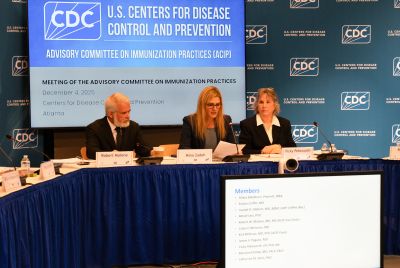Boar's Head Pays Millions to Victims of Listeria Outbreak That Left 10 Dead — Including a $4M Payout
Boar's Head pays out millions to victims of deadly listeria outbreak traced to its Virginia meat facility

Boar's Head, the American deli meat giant, has reached a multi-million dollar settlement following a 2024 listeria outbreak that claimed 10 lives and hospitalised dozens more across the United States.
The class-action settlement provides refunds to consumers and hush-hush payouts to victims while spotlighting alarming food-safety failures at its Jarratt, Virginia plant.
The outbreak, which was traced back to contaminated liverwurst produced at the company's Virginia facility, has sparked widespread scrutiny over food safety standards and corporate accountability.
The outbreak was first investigated by the Centres for Disease Control and Prevention (CDC) in July 2024 and reported, following a cluster of listeriosis cases that emerged across 19 states.
In total, 61 cases were confirmed, with 60 requiring hospitalisation and 10 tragically losing their lives. The CDC noted that the actual number of cases may be higher, as some individuals recover without seeking medical attention or being tested.
Boar's Head responded by issuing a recall of over 7 million pounds of meat and poultry products, initially focusing on liverwurst and later expanding to all items produced at its Jarratt, Virginia, plant. The scale of the recall made it one of the largest in recent memory, and the company came under fire for alleged lapses in hygiene and oversight.
Settlement Reached
In November 2024, Boar's Head reached a settlement in principle to resolve a class action lawsuit filed by affected consumers. The lawsuit, led by New York resident Rita Torres, accused the company of using 'deceptive and misleading' practices by failing to disclose the risk of contamination with Listeria monocytogenes.
While the full details of the settlement were not initially disclosed, subsequent reports confirmed that Boar's Head agreed to pay out $3.1 million to consumers who purchased potentially contaminated products between May and August 2024.
Victims who suffered more severe consequences, including hospitalisation or death, are believed to have received additional compensation, with some reports indicating payouts as high as $4 million.
According to Newsweek, the company filed a letter with the court stating that all parties had agreed to the terms and requested 60 days to finalise the agreement. The settlement includes provisions for refunds to consumers, even those without proof of purchase, and offers multiple payment options, including direct deposit and prepaid cards.
Troubling Inspection Findings

The fallout from the outbreak has prompted deeper investigations into Boar's Head's operations. Documents obtained through a Freedom of Information Act request revealed 69 instances of 'noncompliance' at the Jarratt facility in the months leading up to the recall.
These included reports of live insects, mould, mildew, and standing water, which are conditions that experts say create a perfect breeding ground for Listeria.
Food safety advocates criticised Boar's Head, while lawmakers urged the United States Department of Agriculture (USDA) to reform its inspection process.
Food scientist and industry consultant Dr Bryan Quoc Le previously told USA TODAY that the incident has severely damaged public confidence. 'I think the whole scenario has broken the trust of the consumer,' he said. 'As a personal consumer and someone that is in this industry, I would probably tell my family members: 'Don't eat Boar's Head for at least six months, if not a year.''
A Wake-Up Call for the Industry
Listeria is a particularly dangerous pathogen, especially for pregnant women, the elderly, and those with weakened immune systems. It can survive refrigeration and is often found in ready-to-eat products, such as deli meats and soft cheeses. The Boar's Head outbreak has reignited calls for stricter regulation and more transparent reporting within the food industry.
While the CDC has officially declared the outbreak over, the repercussions continue. Boar's Head is reportedly conducting systematic reviews of all its facilities, and the USDA has launched an internal investigation into its handling of the case.
For the families affected, no amount of money can undo the damage. However, the settlement offers some measure of justice and serves as a stark reminder that food safety is not just a regulatory issue, but a profoundly human one.
© Copyright IBTimes 2025. All rights reserved.





















